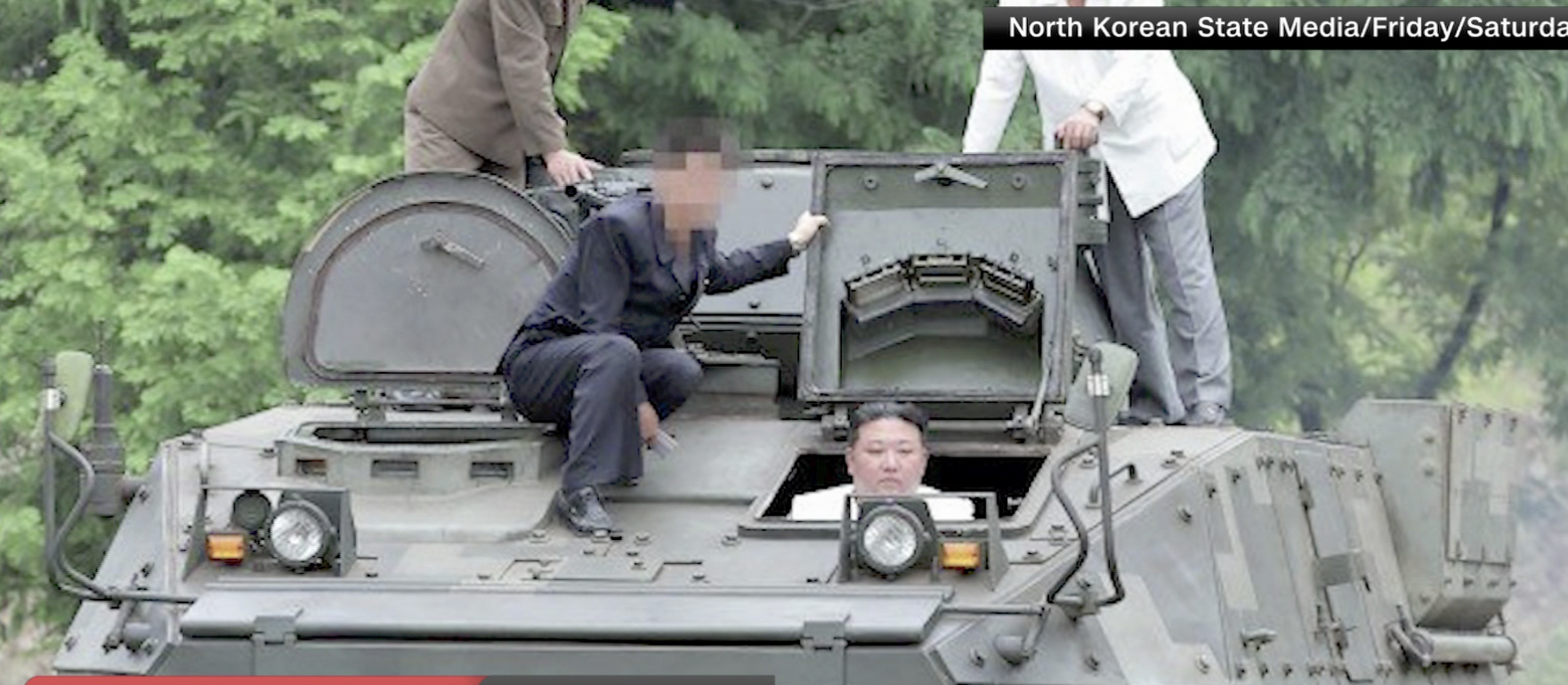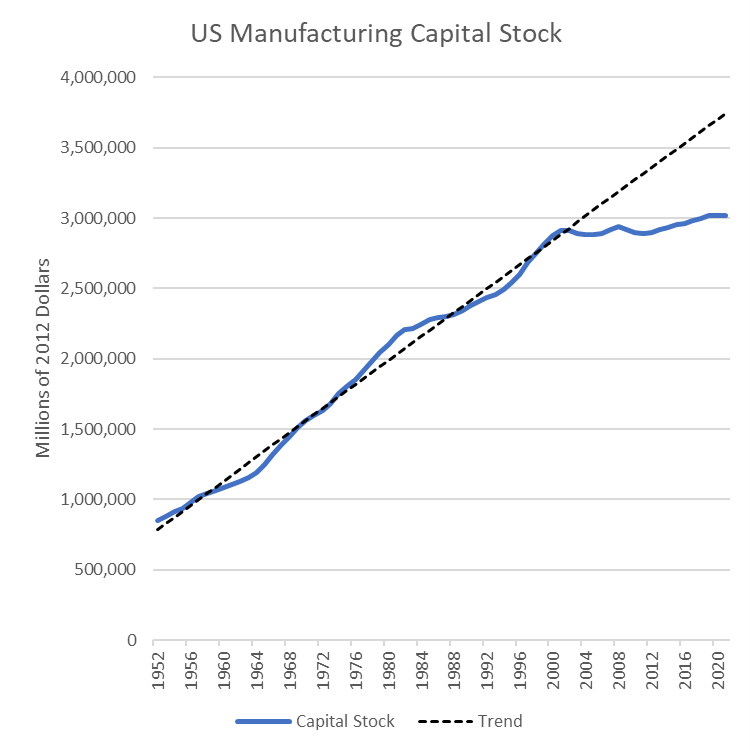Image is from this article in the New York Times.
A magnitude 6.8 earthquake struck Morocco on September 8th, with the epicenter 73 kilometers away from Marrakesh.
At least 2500 people have died as of September 11th, most outside Marrakesh, with more people being pulled out of the rubble every day, making it the deadliest earthquake in Morocco since 1960, and the second-deadliest earthquake this year (first being, of course, the one in Turkiye-Syria in February, which killed nearly 60,000 people). While the deaths are the most horrific part, damage to historic sites has also been very significant - including buildings dating back to the 1000s.
Morocco is situated close to the Eurasian-African plate boundary, where the two plates are colliding. The rock comprising the Atlas Mountains, situated along the northwestern coast of Africa separating the Sahara from the Mediterranean Sea, are being pushed together at a rate of 1 millimeter per year, and thus the mountains are slowly growing. As they collide, energy is stored up over time and then released, and faults develop. The earthquake this month originated on one such fault, as did the earthquake in 1960. The earthquake hypocenter was 20-25 kilometers underground, with 1.7 meters (or 5 and a half feet) of rock suddenly shifting along a fault ~30 kilometers (19 miles) long.
Earthquake prediction is still deeply imprecise at best, and obtaining decent knowledge and forewarning of earthquakes is highly dependent on dense seismometer arrays that constantly monitor seismic activity, such as in Japan, and detailed understanding of the local and regional tectonic environment. The best way to prevent damage is to build earthquake-resistant infrastructure and establish routines for escaping buildings and reaching safety. All of these, of course, are underdeveloped to nonexistent in developing countries, particularly in poorer communities inside those countries.
The Country of the Week, in honour of Allende’s death 50 years ago (the only bad geopolitical event that has occurred on September 11th, of course), is Chile. Feel free to chime in with books, essays, longform articles, even stories and anecdotes or rants. More detail here.
Here is the map of the Ukraine conflict, courtesy of Wikipedia.
The weekly update is here!
Links and Stuff
The bulletins site is down.
Examples of Ukrainian Nazis and fascists
Examples of racism/euro-centrism during the Russia-Ukraine conflict
Add to the above list if you can.
Resources For Understanding The War
Defense Politics Asia’s youtube channel and their map. Their youtube channel has substantially diminished in quality but the map is still useful.
Moon of Alabama, which tends to have interesting analysis. Avoid the comment section.
Understanding War and the Saker: reactionary sources that have occasional insights on the war.
Alexander Mercouris, who does daily videos on the conflict. While he is a reactionary and surrounds himself with likeminded people, his daily update videos are relatively brainworm-free and good if you don’t want to follow Russian telegram channels to get news. He also co-hosts The Duran, which is more explicitly conservative, racist, sexist, transphobic, anti-communist, etc when guests are invited on, but is just about tolerable when it’s just the two of them if you want a little more analysis.
On the ground: Patrick Lancaster, an independent and very good journalist reporting in the warzone on the separatists’ side.
Unedited videos of Russian/Ukrainian press conferences and speeches.
Telegram Channels
Again, CW for anti-LGBT and racist, sexist, etc speech, as well as combat footage.
Pro-Russian
https://t.me/aleksandr_skif ~ DPR’s former Defense Minister and Colonel in the DPR’s forces. Russian language.
https://t.me/Slavyangrad ~ A few different pro-Russian people gather frequent content for this channel (~100 posts per day), some socialist, but all socially reactionary. If you can only tolerate using one Russian telegram channel, I would recommend this one.
https://t.me/s/levigodman ~ Does daily update posts.
https://t.me/patricklancasternewstoday ~ Patrick Lancaster’s telegram channel.
https://t.me/gonzowarr ~ A big Russian commentator.
https://t.me/rybar ~ One of, if not the, biggest Russian telegram channels focussing on the war out there. Actually quite balanced, maybe even pessimistic about Russia. Produces interesting and useful maps.
https://t.me/epoddubny ~ Russian language.
https://t.me/boris_rozhin ~ Russian language.
https://t.me/mod_russia_en ~ Russian Ministry of Defense. Does daily, if rather bland updates on the number of Ukrainians killed, etc. The figures appear to be approximately accurate; if you want, reduce all numbers by 25% as a ‘propaganda tax’, if you don’t believe them. Does not cover everything, for obvious reasons, and virtually never details Russian losses.
https://t.me/UkraineHumanRightsAbuses ~ Pro-Russian, documents abuses that Ukraine commits.
Pro-Ukraine
Almost every Western media outlet.
https://discord.gg/projectowl ~ Pro-Ukrainian OSINT Discord.
https://t.me/ice_inii ~ Alleged Ukrainian account with a rather cynical take on the entire thing.
Last week’s discussion post.
from Rybar:
Another great news from the world of OSINT: another batch of secret files has been posted on the forum of the Russian game War Thunder . This time, documentation for the American F-117 bomber appeared there with all the characteristics and descriptions of the systems. The funny thing is that this is already the 11th (eleventh) such leak in the War Thunder community over the past few years. Similarly, the following became available to the general public:
Complete documentation on the European fighter Eurofighter Typhoon DA7, 730 pages long.
▪️A manual for the Chinese Shenyang J-8B fighter and a document for the on-board complex of the MiG-29 fighter.
▪️Part of the gunner’s technical manual for the French Leclerc tank and excerpts from the operation and maintenance manual for the British Challenger tank.
▪️Drawings and technical characteristics of the Chinese 125-mm armor-piercing sabot projectile DTC10-125.
▪️Description of systems and weapons of American multirole fighters F-15E and F-16.
gamers ftw
Okay, everyone, bye

“I wish that NATO would never expand eastwards ever again!”
Monkey’s paw curls
Japan joins NATO, then Ukraine, liberal pundits claim that technically they are expanding westward since the earth is round

https://www.cnn.com/2023/09/12/media/white-house-letter-news-executives/index.html
The White House sent a letter to top US news executives on Wednesday, urging them to intensify their scrutiny of House Republicans after Speaker Kevin McCarthy launched an impeachment inquiry into President Joe Biden, despite having found no evidence of a crime.
“Covering impeachment as a process story – Republicans say X, but the White House says Y – is a disservice to the American public who relies on the independent press to hold those in power accountable,” Sams wrote.
It’s a good thing the media is so independent or this kind of overt influence of a regime in the media would have me worried!
AMLO dropping a “reacting to” video.
AMLO plays a video of Milei talking about the Pope. The man absolutely hates the Pope because he has a Peronist-ish background and once spoke about Social Justice and was once related to a few argentine communists back in the day. So he begins to yell saying that the devil took the “House of God” and that he “Pushes for communism” (Imagine the Pope being this based). AMLO’s reaction is priceless. Libertarian by the way, and super pro-church. Go figure.
May God have pity on our people, because these people wont.
US at grave risk of China tech war retaliation
The US imported US$33 billion in capital goods from China for electricity generation and distribution in 2022, items that are no longer manufactured in the US.
Substituting domestic production for these items would entail long lead times and exorbitant costs, industrial officials say. In the event of a full-scale trade war, a Chinese ban on critical components could cripple basic US infrastructure.
“The vulnerability of supply chains for critical infrastructure is acute and self-inflicted. The US and its allies have allowed themselves to become captive to Chinese cartels that control production of electronic components, high-powered magnets, printed circuit boards, computers, drones, rare earth metals, wind turbines, solar cells, cellular phones and lithium batteries… In fact, nearly every element of the technology-based digital smart grid is dependent on Chinese-made components,” Brien Sheahan, a former top US energy regulatory official, wrote in April.
US defense contractors also depend heavily on China. In a June 19 interview with the Financial Times, Raytheon CEO Greg Hayes said his company had “several thousand suppliers in China and decoupling is impossible. We can de-risk but not decouple,” adding that he believed this to be the case “for everybody” in US manufacturing.
Hayes added, “Think about the $500 billion of trade that goes from China to the US every year. More than 95% of rare earth materials or metals come from, or are processed in, China. There is no alternative. If we had to pull out of China, it would take us many, many years to re-establish that capability either domestically or in other friendly countries.”
It is a good article there is more and some graphs.
You can spot the exact date the American capitalists decided to offshore manufacturing to China lol.

Okay, next COTW! Taking suggestions.
so: North America, Eastern Asia, the Middle East, Oceania, Europe…
I was actually thinking of doing Syria but I would feel bad about doing it while our extremely powerful poster LargePenis is away, so perhaps we’ll save that for the near-future. Another idea is the DPRK, but I wanna break up the trend of “countries fucked over by US imperialism” before it begins, keep things interesting, and perhaps instead do a Western country this week. How about Spain? Lots of interesting history there.
This week, 35,000 arms company representatives, military officers and state officials from around the world are congregating at the Excel Centre in Newham, East London.
Over four days, [Sept. 12-15] guests at Defence and Security Equipment International (DSEI) can watch demonstrations of new weapons systems, listen to keynote speakers euphemise the global appetite for war-making, visit warships moored on the Thames, and make connections with buyers and sellers via a dedicated networking app.
For the more sportingly inclined, there is the tri-force tug of war to show off the brawn and teamwork of the British Army, Royal Air Force and Royal Navy.
DSEI is a significant opportunity for states, their militaries and the arms industry to connect in the global race to (re)arm that is currently underway. Global military spending passed the $2 trillion mark for the first time in 2021; in 2022 it hit $2.2 trillion.
The immediate cause of the jump is the war in Ukraine, as a result of both Russian and Western increases in military spending. But stockpiles are dwindling, and inflation and shortages in supply chains pose a challenge for industry.
Defence spending is effectively a tap on the state budget for arms companies. In the U.K., the war in Ukraine has resulted in new orders worth at least £280 million — and potentially up to £400 million — for BAE Systems to produce munitions for the MoD, which will donate them to Ukraine.
BAE’s share price has jumped more than 75 percent since the Russian invasion.
BAE is also setting up shop in Ukraine itself, with a view to ultimately producing weapons there locally. Meanwhile, Russia has said any BAE presence in Ukraine will be an “object of special attention” for its military.
Beyond Ukraine, the arms industry’s interests are directly inserted into the structures of the British state.
There is a government body dedicated to promoting arms exports, called U.K. Defence and Security Exports, that provides support to companies to advertise at arms fairs like DSEI. They offer help with government-to-government relationships, bilateral meetings, VIP programmes and presentations on what the weapons can do.
And while industry profit is one side of the arms trade coin, the other is state geopolitical interest: the deep commitment in the British government and establishment — across both Conservatives and Labour — that Britain should remain a great power and have the military might to be one.
This is the context of the deep, entrenched relationship between the British state and arms companies.
Beyond the immediate support for companies to hawk their wares, it is worth remembering that the preparation for war is paid for by taxpayers.
BAE Systems, which is routinely portrayed as contributing to jobs and the economy, paid less than 15 percent of its own research and development costs in 2022: the rest was paid by the state.
The costs of weapons production are socialised — but the profits are privatised.
And the arms industry is increasingly owned by major asset managers and investment funds, whose returns flow to wealthy individuals, pension funds and foundations.
According to new research from Common Wealth, just two investment firms — BlackRock and Capital Group — together control more than a quarter of BAE Systems. BAE may wrap itself in the Union Jack for advertising purposes and boast about the number of jobs it creates in poorer communities in Britain, but it is firmly enmeshed in the circuits of transnational capital.
Arms production is not as good for the national economy as the public is told. It’s also not that good for those on the receiving end. BAE Systems provides engineering and technical support for the weapons used by the Saudi-led coalition in Yemen, in a war where all sides stand credibly accused of war crimes.
There is photographic evidence of U.K.-produced weapons parts found at the site of airstrikes in Yemen that the U.N. Panel of Experts concluded could only have been carried out by the Saudi-led coalition in a likely violation of international law.
This direct evidence of the misuse of U.K.-supplied weapons flies in the face of U.K. export controls, which state that the government will not allow arms exports where there is a clear risk they might be used in a serious violation of international humanitarian law.
But it’s more than simply a case of the controls not being worth the paper they are written on. The government — again, whether Conservative or Labour — makes great play of its controls. They use them to justify and legitimise British involvement in the arms trade.
Ask the government pretty much any question you like about its arms exports, and the answer you will always get is that the U.K. has one of the most robust arms export control regimes in the world.
That’s why Campaign Against Arms Trade took the government to court about its arms exports to Saudi Arabia — three times. The first time, the High Court found in the government’s favour, on the grounds that government policy was legally rational. That doesn’t mean it was a good policy, but that it was rational in narrow legal terms.
The second time around, when CAAT appealed, the government was found to have not even tried to conduct a meaningful risk assessment of the past use of weapons and told it had to stop issuing licences to Saudi Arabia.
The government amended some other licences to ensure that companies could carry on transferring weapons under licences that had previously been granted; and conducted a whitewash internal review saying that any violations were isolated incidents and couldn’t be said to constitute a pattern.
So CAAT took them to court again. The decision was released in June – disappointingly, although perhaps not surprisingly, the judges found in favour of the government. Again, the decision was on the narrow grounds of legal rationality.
The strength of U.K. controls, such as they are, is largely down to NGOs in the British arms transfer control community. Yet the government is committed to exporting weapons when it deems it in its interest, regardless of the consequences.
This runs alongside an increasingly racist and violent orientation towards migrants, asylum seekers and refugees — the latter often being the very people who are displaced by the wars facilitated by U.K.- supplied weapons.
This is why activists return to Newham every two years when DSEI does.

Ukraine took back a village near Bakhmut that had less than a hundred people before the war and it’s apparently significant enough to be on Wikipedia’s current events portal lol
Why can’t US citizens go to DPRK regardless of US policy against it? Isn’t it up to DPRK who they let in? I’ve tried to find this answer and the closest I’ve come is that the tour groups (which is pretty much how you have to enter) are refusing US passport holders. Is this the answer? Are any US citizens still traveling there secretly? (Besides the defecting soldier guy)
I bring a sort of “constantly bringing up the Chilean coup” vibe to 9/11 that liberals and chuds don’t really like
This headline clearly shows how the worm has turned for media attitudes towards ukraine
https://archive.ph/YATEz - Ukraine’s counteroffensive is stalling. The West must prepare for humiliation
The article is not worth reading to learn about the war but could be worth if interested in changing sentiment
This article is actually worth reading, a bunch of history of Crimea, various referendums (referenda?) over the past 30 years. The quote below is referencing some other author Graeme
https://socialistincanada.ca/revisiting-crimeas-2014-decision-to-join-the-russian-federation/
Graeme Gill closes his informative essay on an unfortunate note. He writes, “Final resolution of the Crimea question must rest with some form of popular plebiscite directly run and overseen by an international body…” This begs two questions: how many times must the Crimean people vote before the world recognizes that Crimean viewpoints and decisions do, indeed, matter; and which international body has the authority and credibility to conduct such another vote?
Gill must surely be aware of the long history of Western imperialist countries and the ‘international bodies’ they control or dominate sabotaging democratic votes and going so far as to assassinate those who win.
Graeme Gill closes his informative essay on an unfortunate note. He writes, “Final resolution of the Crimea question must rest with some form of popular plebiscite directly run and overseen by an international body…” This begs two questions: how many times must the Crimean people vote before the world recognizes that Crimean viewpoints and decisions do, indeed, matter; and which international body has the authority and credibility to conduct such another vote?
This is what I worry about happening with the new oblasts. It’s all well and good and noble and whatever to be like “Oh, we need to do the referendums again to be fair and ensure we have captured the democratic will of the people” but a) why would Western electoral institutions (or “international” ones, which we all know are America-dominated) give a more accurate view, especially with their strong propaganda machinery, and b) if the people still vote to join Russia even under those conditions, will the West actually accept them or will they just say “Oh, there were too many irregularities, we need to do it again actually” ad infinitum? Equally, if the people actually vote to leave, why wouldn’t they also just do that and claim (rightly or wrongly) that they were rigged in favor of the West? Both sides are obviously going to do all they can to make sure they get the result they want, there is no conceivable way to get even a remotely unbiased referendum in those four oblasts.
At the end of the day though I think it’s not actually going to be an issue because I am 95% sure that Putin will never allow another referendum to take place on whether they should be part of Russia or not, regardless of what peace plans people like to propose on social media.
Yeah I don’t think there will be referendums in the four oblasts again. They already did them, however comical it is to have a wartime referendum on half a territory.
I am very skeptical of the west ever officially accepting territorial changes, at least not until it has been defacto accepted for 20+ years.
COTW: Ideas for books
Getting into the literature side of things, here’s a few titles that stand out to me. Ideally I’d like to have just one book per time period in a country’s history, and obviously prefer books written by communists rather than liberals. I haven’t read any of them, so feel free to let me know if they contain any brainworms, and if there’s any other books that better talk about Chile:
Pre-1970:
I have found one book, written last year actually; Marxism and Democracy in Chile: From 1932 to the Fall of Allende, by Julio Faundez, a professor at a UK university. 272 pages.
Allende (1970-1973):
The Santiago Boys podcast. Not strictly literature but they are focussed on telling the story of Cybersyn and Allende. Already in the geopolitical reading list.
Cybernetic Revolutionaries: Technology and Politics in Allende’s Chile, by Eden Medina. 485 pages.
Hungry for Revolution: The Politics of Food and the Making of Modern Chile, by Joshua Frens-String. 322 pages.
1000 Days of Revolution: Chilean Communists on the Lessons of Popular Unity. Nine chapters, 140 pages, each written by a Chilean communist in their party, on what happened between 1970-73. I personally can’t find any online version but I am far from an adept pirate - and besides, the book is cheap enough, so I have ordered it.
Pinochet (1973-1988):
I’m less sure about books here.
From Pinochet to the ‘Third Way’: Neoliberalism and Social Transformation in Chile, by Marcus Taylor. 240 pages.
The Pinochet Regime, by Carlos Huneeus. 559 pages. Seems very dry and academic.
The Pinochet File: A Declassified Dossier on Atrocity and Accountability, by Peter Kornbluh. 592 pages.
Post-1988:
I have no real ideas here, because I am an ignorant doodoo head on what’s happened in Chile over the last 30 years and wouldn’t even really know where to begin.









